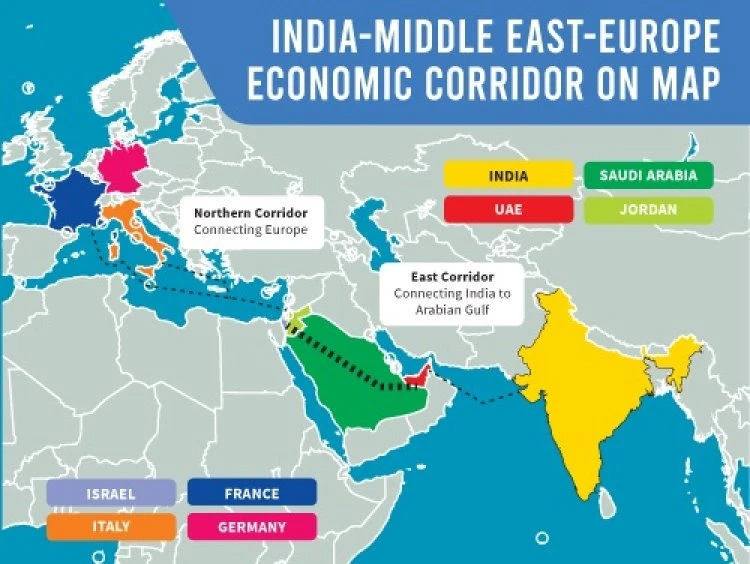IMEC to sabotage CPEC

Stay tuned with 24 News HD Android App

The recent unveiling of the India-Middle East-Europe Economic Corridor (IMEC) signifies a bold strategic play by the United States, India, and their allies, ostensibly aimed at bolstering economic integration and providing a counterweight to China's expansive Belt and Road Initiative (BRI). However, beneath the surface of these lofty ambitions, IMEC appears as a calculated move to disrupt the burgeoning economic synergy between China and Pakistan, epitomized by the China-Pakistan Economic Corridor (CPEC). This manoeuvre, while ambitious, risks further entrenching geopolitical rifts, undermining regional stability, and sidelining the prospects of collective prosperity for an already volatile region.
At its heart, IMEC is not merely an economic venture but a geopolitical gambit designed to reconfigure regional alignments, with particular emphasis on countering Chinese influence. The corridor seeks to forge a new economic pathway connecting India, the Middle East, and Europe, ostensibly offering an alternative to the maritime and overland routes dominated by Chinese investments. However, the strategic implications of this corridor extend far beyond mere economic considerations, threatening to exacerbate tensions between India and Pakistan, and by extension, China.
The strategic oversight in planning IMEC is glaring, particularly in its underestimation of China's entrenched position within the proposed route, especially in critical junctures like the Greek port of Piraeus. This miscalculation not only challenges the feasibility of IMEC but also highlights a potential flashpoint for Sino-Indian tensions, further complicating the already delicate balance of power in the region. Moreover, the initiative's timing, amidst ongoing conflicts and the fragile geopolitical climate of the Middle East, casts doubt on its viability and underlying motivations.
China's deep-rooted economic ties with countries along the IMEC path, especially within the Gulf Cooperation Council (GCC), pose a formidable challenge to the corridor's success. Trade volumes and infrastructure investments underscore the Gulf's pivot towards Beijing, raising questions about the strategic calculus behind IMEC. The corridor's ambition to shift the regional power balance appears increasingly quixotic against the backdrop of China's economic diplomacy and the strategic entrenchment of initiatives like CPEC.
The inclusion of countries like Saudi Arabia and the UAE in IMEC, while symbolically significant, does not guarantee the project's success. The geopolitical quagmire presented by the ongoing Israeli-Palestinian conflict, coupled with the complexities of intra-Gulf relations, further complicates the corridor's operationalization. IMEC's potential to disrupt the economic landscape of the region is overshadowed by the myriad political challenges that beset its path, casting a long shadow over its prospects.
Furthermore, IMEC's proposition inadvertently stirs the cauldron of regional rivalries, with the corridor becoming a potential flashpoint in the broader strategic contest between India and China. The corridor's implications for Pakistan's economic and strategic interests are particularly concerning, as it threatens to isolate Pakistan from emerging regional economic architectures, thereby undermining efforts towards regional integration and economic prosperity.
In conclusion, the India-Middle East-Europe Economic Corridor, while ambitious in scope and intent, is mired in a complex web of geopolitical and economic challenges. The corridor's potential to act as a bulwark against Chinese influence is undermined by strategic missteps and a failure to adequately address the intricate dynamics of regional politics. As it stands, IMEC risks exacerbating existing tensions, dividing regional alliances, and sidelining the collective pursuit of economic development. In the grand chess game of global geopolitics, IMEC represents a strategic misstep, one that could have far-reaching implications for the delicate balance of power in Asia and beyond.
